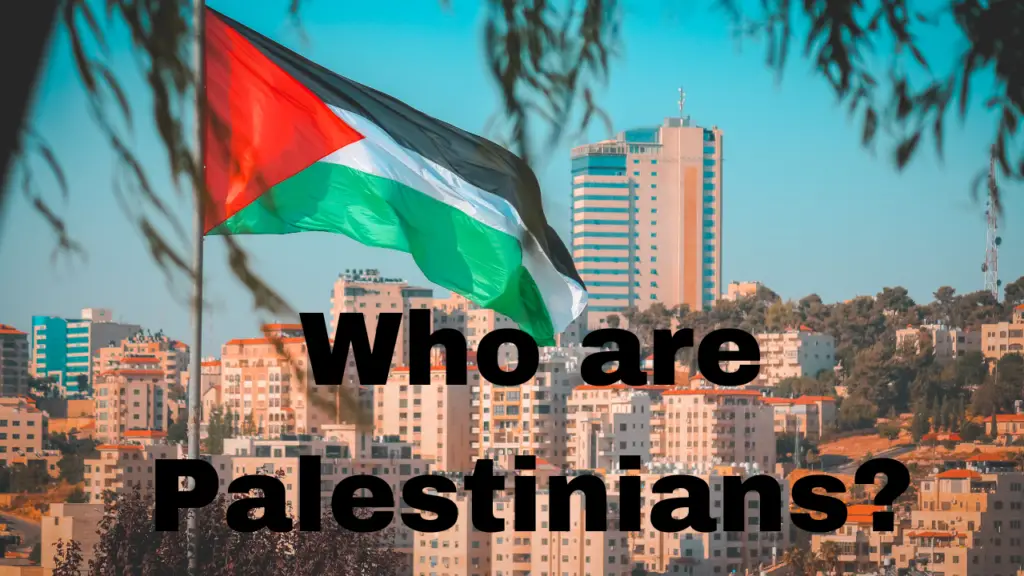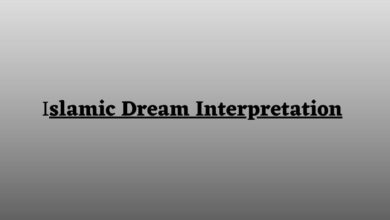
Who are Palestinians?
Palestinians are a diverse group of people with historical and cultural ties to the eastern Mediterranean region, primarily in Palestine. They have a distinct identity and connection to the land.

- Can You Secretly get Married in Islam? | Unlocking the Secrets of Nikah | 2023
- What Does Heaven Iook like |Islamic Article|2023
- History Of April Fools Day in Islam
Who Are Palestinians?
The Palestinian people have a rich and complex history that spans centuries. They are an ethnically and culturally diverse group with a strong connection to the land in the eastern Mediterranean region. This article aims to shed light on the history, culture, and contemporary issues faced by Palestinians.
Historical Background
Palestine is a region that has been inhabited for thousands of years. It is often considered a crossroads of civilizations due to its strategic location. Over the centuries, various empires and groups have ruled over this land, including the Egyptians, Romans, Byzantines, and the Ottoman Empire. These periods have left a lasting impact on the culture and identity of the people living there.
The modern Palestinian identity began to take shape in the late 19th and early 20th centuries. The rise of nationalism and increased migration to Palestine led to the emergence of a distinctive Palestinian identity.
The Palestinian Diaspora
One of the most significant aspects of Palestinian history is the Palestinian diaspora. This refers to the forced displacement of Palestinians from their homeland, primarily as a result of the Arab-Israeli conflict. The Nakba, or “catastrophe,” of 1948 saw the expulsion of hundreds of thousands of Palestinians from their homes.
Today, there are millions of Palestinian refugees living in various countries, including Jordan, Lebanon, Syria, and beyond. They continue to hold onto their Palestinian identity and their right to return to their ancestral land.
Culture and Traditions
Palestinian culture is rich and diverse. It includes a wide range of artistic expressions, including music, dance, and literature. Dabke, a traditional Palestinian dance, is a significant cultural symbol, often performed at weddings and other celebrations. The cuisine is also a point of pride, with dishes like falafel, hummus, and maqluba being beloved staples.
Arabic is the primary language spoken by Palestinians, and Islam and Christianity are the two predominant religions. The Old City of Jerusalem, with its holy sites, holds immense significance for both Muslims and Christians.
Who are Palestinians?
Palestinians are a diverse group of people with historical and cultural ties to the eastern Mediterranean region, primarily in Palestine. They have a distinct identity and connection to the land.
What is the history of Palestinians?
Palestinians have a history that spans centuries, with influences from various empires and civilizations. Modern Palestinian identity began to form in the late 19th and early 20th centuries.
What is the significance of the Palestinian diaspora?
The Palestinian diaspora refers to the forced displacement of Palestinians, primarily due to the Arab-Israeli conflict. It has resulted in millions of Palestinians living in various countries and maintaining their Palestinian identity.
What are some key aspects of Palestinian culture?
Palestinian culture includes traditions, music, dance (such as Dabke), literature, and cuisine. Arabic is the primary language, and Islam and Christianity are the predominant religions.
What is the Israeli-Palestinian conflict?
The conflict is a long-standing struggle between Palestinians and Israelis, rooted in competing national aspirations. It has led to wars, uprisings, and ongoing negotiations.
The Israeli-Palestinian Conflict
The Israeli-Palestinian conflict has been a defining feature of modern Palestinian history. It is rooted in the competing national aspirations of both Palestinians and Jews. The conflict has led to numerous wars, uprisings, and negotiations over the decades.
Key issues include the status of Jerusalem, the rights of Palestinian refugees, and the borders of a future Palestinian state. Achieving a lasting and just resolution to this conflict remains a challenging endeavor.
Contemporary Palestinian Society
In contemporary Palestinian society, there are divisions and challenges. Palestinians are divided between the West Bank, governed by the Palestinian Authority, and the Gaza Strip, controlled by Hamas. These divisions have complicated efforts to create a unified Palestinian state.
Economic challenges and restrictions on movement also impact the daily lives of Palestinians, particularly in the West Bank and Gaza.
The Quest for Statehood
The Palestinian people have long sought recognition as an independent state. The Palestinian National Authority, led by the Palestine Liberation Organization (PLO), has made efforts to achieve statehood and gain international recognition.
The United Nations General Assembly recognized Palestine as a non-member observer state in 2012, a significant step toward achieving this goal. However, the path to full statehood remains fraught with obstacles.
Conclusion
Palestinians are a diverse and resilient people with a deep connection to their land and a rich cultural heritage. Their history is marked by both triumphs and struggles, with the Israeli-Palestinian conflict playing a central role in their modern experience. Achieving a just and lasting resolution to this conflict is crucial for a peaceful and stable future in the region, one in which both Israelis and Palestinians can coexist.
Why is Jerusalem important to Palestinians?
Jerusalem is significant to Palestinians due to its religious and historical importance. The Old City of Jerusalem holds holy sites for Muslims and Christians.
What is the current state of Palestinian society?
Palestinian society is divided between the West Bank, governed by the Palestinian Authority, and the Gaza Strip, controlled by Hamas. Economic challenges and restrictions on movement are significant issues.
What are the goals of the Palestinian National Authority and the PLO?
The Palestinian National Authority and the Palestine Liberation Organization (PLO) aim to achieve statehood and gain international recognition for Palestine. They represent the political aspirations of Palestinians.
Has Palestine been recognized as a state by the international community?
Yes, the United Nations General Assembly recognized Palestine as a non-member observer state in 2012, marking a significant step toward statehood. However, full statehood recognition remains a complex process.
What is the future for Palestinians and the Israeli-Palestinian conflict?
The future is uncertain, but many hope for a just and lasting resolution to the conflict that allows both Israelis and Palestinians to coexist peacefully. Negotiations and diplomacy continue to be central to these efforts.





